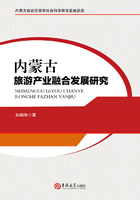Inspections —initially by random sampling and later of the affected population in total — conducted for a two-year period up to June 1951 revealed other forms of compensating payments: forty-two cases in which landowners charged deposit money with no refund, forty-seven cases in which the landowners had collected rent on farm houses over and above the original stipula-tions, and 537 cases of black-market rent payments. A more frequent cause of rental disputes (6,328 cases) was recorded in an item called "harvest loss," which resulted mainly from disagreement between the contracting parties on the "actual" harvest yield. Nearly all these cases were settled by the Provincial Land Bureau.[8]
Tenure Rearrangements
Lease cancellations by landowners constituted the most serious problem confronting the reform officials. In the words of Cheng Chen:
After the reduction of the rental percentage… a minority of landowners… threatened the tenants with lease cancellation.… Usually with cash, goods, or part of the cultivated land, the landowners bribed the tenants to voluntarily terminate the lease. This bribe money is known as the "fee for lease right." The tenants, in fear of the owners' power, were obliged to acquiesce. After the repossessions of land, the landowners seldom cultivated the lands themselves. They usually leased them at black-market rates, sold them, or hired farm hands to do the tilling, so as to protect their illegal unscrupulous profits.[9]
In the two-year period up to June 1951, disputes arising from lease cancellations (dismissals) amounted to 16,349 cases, of which 8,877 cases involved actual lease dismissal.[10] The official settlements of lease cancellations were troublesome, since according to the law the landowners were allowed to cancel leases upon contractual termination and for owner cultivation. The result was that 1,971 lease cancellations were officially granted, and the remaining leases were restored to the tenants.[11] The area of land associated with these granted cases amounted to 1,376 chias, or about 0.04 percent of the total area of land under tenancy before the share restriction.[12]
During the same period (June 1949 to June 1951), the area of farm land purchased by tenant farmers from landowners amounted to only 2.2 percent of the total area of land under tenancy.[13] This form of transfer was allowed by reform authorities in the expectation that it would lead to more equal distribution of land. It is not easy to understand why outright transfers of landowner-ships to tenants were so few. The answer to this seems to lie in the drastic fall of land prices. From 1948 to 1951, land prices measured in rice for various land grades fell by a range of 46 to 62 percent[14] —proportional decreases greater than the rental share reduction. This means that the rental income to the landowner under the share restriction, even in the absence of compensating payment or resource reallocation, would be higher than the interest return from selling outright. The drastic fall in land prices may be partly explained by the specialization in risk bearing or management associated with alternative tenure arrangements. It may have been due also to a fall in the speculative demand to hold land, generated by the expectation of other reform measures forthcoming.
Conclusions
The evidence of compensating payments and tenure rearrangements presented in this section illustrates the offsetting contrac-tual rearrangements derived in section A. These are revisions through which the initial equilibrium of a lease contract may be restored under the rental share reduction. In spite of all the claims that these rearrangements (mostly illegal) were "alarming," available sources indicate that they occurred in no more than 10 percent of the tenant contracts affected by the rental restriction, and the greater part of these illegal practices was suppressed and corrected according to law. In view of the fact that the number of farm leases affected by the rental share restriction totaled 380,473, and considering that the rental percentage was reduced from an estimated mean of 56.8 percent of the annual yield to 37.5 percent, one wonders why compensating payments and tenure rearrangements were so few. Effective enforcement of law is one explanation, but it hardly seems sufficient. Indeed, the enforcement of the share restriction in 1949 was regarded by the lawmaker as "incredibly smooth."[15] Why? Suppose we ask a seemingly unrelated question: If compensating payments and tenure rearrangements do not take place to the extent of restoring the initial resource use, what adjustments will we observe in resource allocation? As it turns out, the answer to this helps, in part, to explain why the illegal practices were infrequent: the landowner could protect his rental income from land after the percentage reduction, without violating the law, through adjusting farming intensity.
[1]. See Cheng Chen, Records of Taiwan Land Reform (Taipei: Chung Hwa Book Co., 1961), chap. 2.
[2]. Sino-American Joint Commission on Rural Reconstruction, "JCRR Annual Reports on Land Reform in the Republic of China," Composite volume, mimeographed (Taipei: Farmer's Service Division, 1965), p. 9.
[3]. Ibid., chap 2.
[4]. See Chen, Records, chap. 2; JCRR, "Annual Reports," chap. 2; and Taiwan Provincial Land Bureau, "Implementation of the 37.5 per cent Farm Rent Limitation Program," mimeographed (Taipei: JCRR Translation, 1950).
[5]. JCRR, "Annual Reports," p. 9.
[6]. Ibid., p. 10
[7]. TPLB, "Implementation,'' pp. 24-25, table 5.















